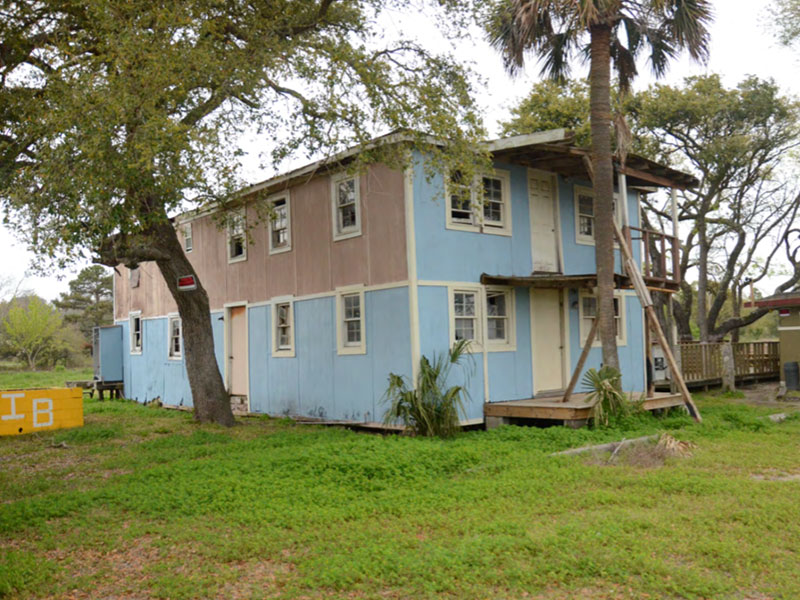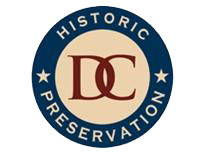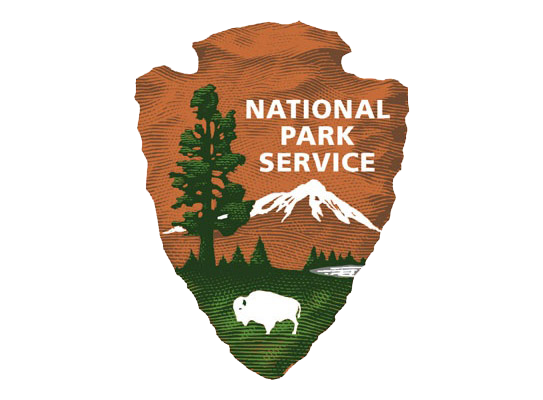Pine Tree Hotel, Mosquito Beach, South Carolina
/Blog/Endangered-African-American-Historic-Sites/Endangered-African-American-Historic-Sites/Pine-Tree-Hotel-Mosquito-Beach-South-Carolina/?link=1&fldKeywords=&fldAuthor=&fldTopic=0
Wednesday, February 19, 2020 • • General
The Pine Tree Hotel was one of the few beach hotels open to African Americans in South Carolina during segregation in the 1960s. Hurricane Hugo in 1989 badly damaged the landmark, and it hasn't been open since.
The 14-room hotel still sits boarded up on James Island in Charleston, but a new $490,000 grant will help pay to restore the historic site near Mosquito Beach, according to the Historic Charleston Foundation.

The rural island community of Mosquito beach off of Sol Legare Road on James Island was a popular waterfront hangout for African-Americans in the early 1950s during the time of segregation. Because blacks were forbidden at white beaches on Folly, the black residents were forced to travel to black beaches such as Riverside Beach, which was all the way in Mount Pleasant. As a resolution, the owners of the Creekside property, which is still owned today by the same family, opened a pavilion in 1953. The community was christened "Mosquito Beach" in an attempt at realistic irony in honor of the pesky insects that populated the marsh. The "Pine Tree Hotel" was constructed in 1961 and had 14 rooms where guests shared a common kitchen and bathroom.
Recently, the owners of Pine Tree Hotel had to defend the structure against aggressive Charleston County Building inspectors who fought for having the building demolished. After making the building safe from trespassers and enclosing it in a chain link fence, Charleston County continued to demand its demolition and the owners had to defend itself in court. Though a the most recent judgement dismissed the county's claims, the hardships put on the owner make it difficult to have the resources to rehabilitate the property.
Links:
Hotel served black beachgoers in Jim Crow South Carolina.
Here's how it could be saved Endangered SC civil rights era hotel on Mosquito Beach to be restored
/Blog/Endangered-African-American-Historic-Sites/Endangered-African-American-Historic-Sites/The-Unity-Cemetery-Preservation-Fund-is-accepting-applications-for-funding-in-2026/?link=1&fldKeywords=&fldAuthor=&fldTopic=0
Friday, September 26, 2025 • • General
SEPTEMBER 25, 2025 - It is our pleasure to announce that the Unity Cemetery Fund is accepting applications for funding in 2026. The attached PDF includes detailed information about the grant process. Applications will be due February 28th, 2026. The award will be announced in May 2026.
In 2024 the Unity Cemetery Fund was pleased to be able to award funding to Geer Cemetery in North Carolina for needed repairs and infrastructure work, and in 2025 we provided funding to the Descendants of Olivewood in Texas for needed repairs within their cemetery.
/Blog/Endangered-African-American-Historic-Sites/Endangered-African-American-Historic-Sites/A-Search-for-Ancestors-Sheds-New-Light-on-Pierce-Chapel-African-Cemetery/?link=1&fldKeywords=&fldAuthor=&fldTopic=0
Sunday, August 17, 2025 • • General
As a society, we struggle with the concepts of death and loss. Once those realities touch our lives though, we tend to lean into remembrance: through familial altars, commemorative t-shirts, even memorial tattoos. We recognize our late loved ones through physical spaces, cemeteries, with touching gravestones, and bouquets lining the casket buried below.
But for an immeasurable number of Black families, even this basic respect wasn't extended to their ancestors. Many curious descendants, like Yamona Pierce, have to carry out search expeditions for their family members, constructing retroactive family trees to trace lineages that weren't carefully written down.
/Blog/Endangered-African-American-Historic-Sites/Endangered-African-American-Historic-Sites/Mellon-Foundation-awards-125-million-for-Mosquito-Beach-Restoration/?link=1&fldKeywords=&fldAuthor=&fldTopic=0
Thursday, May 1, 2025 • • General
Historic Charleston Foundation (HCF) is proud to announce a generous $1.25 million grant from the Mellon Foundation to complete the rehabilitation of the historic Pine Tree Hotel and adjacent Skeeta Beach Lounge for the newly formed Historical Mosquito Beach Foundation.








